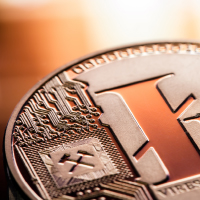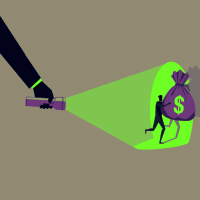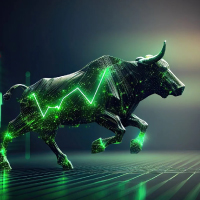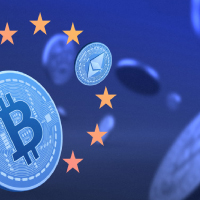
Amidst Bitcoin reaching multi-year highs and Ethereum taking several steps forward towards Web 3.0, 2021 also belonged to NFTs.
It became Collins Dictionary’s “Word of the Year,” with an 11,000% increase in the use of the abbreviation in mainstream consciousness. Not only that, traders turned this hype into huge market gains. Trading in NFTs reached $17.6 billion in 2021, representing a 21,000% increase from 2020.
NFTs or Non-Fungible Tokens represent the next frontier of the crypto or blockchain revolution. These digital tokens define ownership of real-world assets, such as music, artwork, fashion, videos, and much more. The blockchain technology supporting these tokens acts as a digital contract, establishing legal ownership of assets. NFTs offer a viable revenue channel for artists, musicians, and content creators.
Apart from being digital collectibles, NFTs are finding diverse use cases in different sectors. No wonder notable celebrities and venture capitalists are investing in NFT marketplaces.
Which Industries Will Be Disrupted by NFTs?
In 2017, Cryptokitties, where users can collect, breed and sell NFT kittens, became so popular that it created bottlenecks on the Ethereum network due to high transaction volumes. Today, there are several games built completely on NFTs, potentially transforming the in-game marketplace. Players of the Pokémon-inspired monster battle NFT game Axie Infinity transacted around $3.5 billion worth of NFTs in 2021. This represented two-thirds of all NFT transactions in the complete blockchain gaming industry. Blankos Block Party was another play-to-earn (P2E) game, which has exploded in popularity in recent years.
More than just gaming, NFTs represent a viable way for blockchain technology to make a difference in many sectors. This includes the metaverse, healthcare, fintech, and many more.
Fintech
NFTs present the potential to tokenise a wide range of assets and connect real-world financial markets to the DeFi landscape. For instance, fixed-income vehicles and investment notes can be moved to the blockchain to enable greater transparency, settlements and liquidity enhancements. Smart contracts can eliminate the cost by removing third parties. Moreover, NFTs can tokenise vital documents, thereby preventing fraud in regulatory and supply-chain procedures. Token economies can be revolutionary, taking the concept of cryptos forward in the financial world.
Legal questions associated with proper verification of ownership and potential infringement of authentic purchases will arise. If cryptos are treated as securities, consumers will face difficulties in using them for the purchase of digital goods. Regulatory bodies like the US Securities and Exchange Commission regard some NFTs as unregistered securities in specific circumstances. Such stances put NFT investments at risk. The question is what these tokens can be classified as. AML regulatory bodies are becoming interested in this space, when NFTs act as currency substitutes. If they are regarded as commodities, they will be regulated under the Commodities Exchange Act in the US.
NFT players will need to take into account the significant costs associated with non-compliance. In 2021, the world saw the first NFT class action lawsuit against Dapper Labs, filed by Jeeun Friel, on the allegation NBA Top Shot Moments are unregistered securities. NBA Top Shot Moments are tokenised versions of video clips showing highlights of NBA games.
Emerging Laws Concerning NFTs
2022 could well be the year of regulation of cryptos in Europe. The landmark EU MiCA regulation seeks to establish a single license for crypto providers who wish to operate in the continent (in one or more of the bloc’s 27 nations). Significant stress is being laid on investor protection and market stability. If the European parliament reaches a definitive conclusion, the bill will also include everything from regulation of NFTs to the environmental impact of bitcoin-type assets.
With potential issues, such as copyrights, money laundering and energy consumption, companies and consumers will need to first understand the legal repercussions of NFT transactions and investments.
The MiCA Proposal includes regulations that would apply to NFTs in certain cases and defines for the first time in the EU a cryptoasset as a “digital representation of value or rights which may be transferred and stored electronically, using distributed ledger technology or similar technology.”
The MiCA Proposal is intended to provide comprehensive regulation of cryptoassets not yet covered by EU financial law, in order to streamline distributed ledger technology and virtual-asset regulation in the EU. As an EU Regulation, it will apply directly in all EU member states and will not require implementation in national laws.
It aims to regulate:
the public offering of cryptoassets,the admission of cryptoassets to trading on a trading platform, (iii) the licensing of cryptoasset service providers (CASPs) and (iv) the implementation of market abuse rules for cryptoasset businesses.
NFTs and regulation on digital assets
NFT market participants should consult with their advisers to understand the potential impact of existing and forthcoming regulations, such as the MiCA Regulation on their licensing and compliance frameworks. Specifically, market participants should consider whether their current anti-money laundering manuals require any updates for NFT-related transactions, while NFT marketplaces that may not originate from the traditional art market should consider whether they could be subject to the application of anti-money laundering requirements for art market participants.
NFTs and smart contract
When creating or acquiring an NFT, the platform that underlies the NFT is using a smart contract. A smart contract is a computer code that automates the performance of certain contract provisions, and the code is self-executing.
If the smart contract does not cover all aspects of copyright licensing you want to protect, then you need to consider what terms you want to include in natural language, to address any risks and liabilities, including those identified above.
For some NFT creators or investors these legal issues may not be a priority to address, whereas the layer of legal protection will increase the value of their business and the economic return of any future exploitation.
In the anticipation of the upcoming pan-European regulation for cryptoassets (MiCA), Cyprus will publish additional legislative instruments governing, inter alia, the application requirements for “cryptoasset service providers” in the anti-money laundering registry to be maintained by CySEC as well as their additional legal obligations in order to ensure compliance with other relevant laws.
The anticipated legislative amendments are expected to create a solid legal framework and thus attract companies operating with NFTs.
Our team has the skillset and expertise in the crypto field.
Our global licensing services guide crypto businesses into becoming supervised entities and in complying with the applicable regulatory framework.
Please contact us if you would like additional information relating to your unique crypto-business needs.
The information provided by A.G. Paphitis & Co. LLC is for general informational purposes only and should not be construed as professional or formal legal advice. You should not act or refrain from acting based on any information provided above without obtaining legal or other professional advice.













